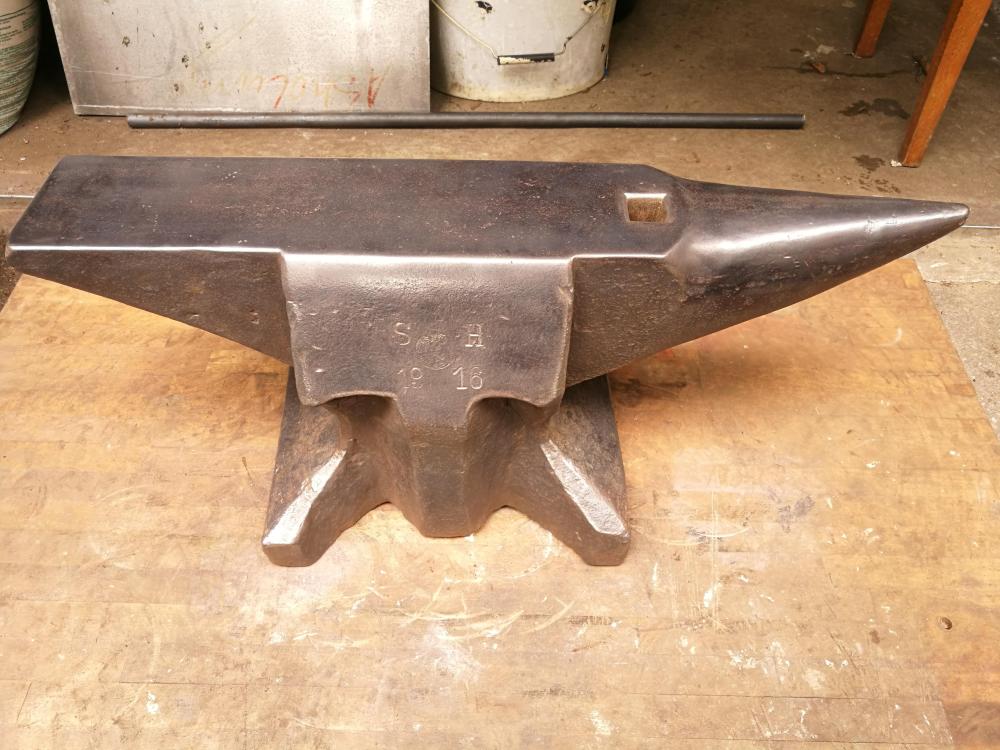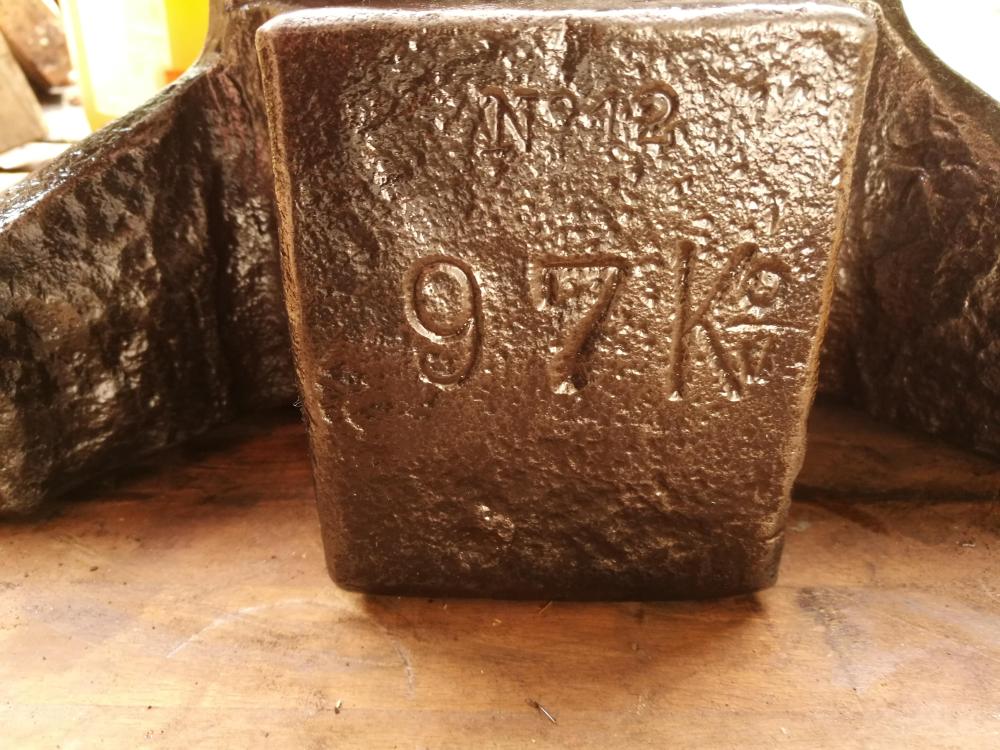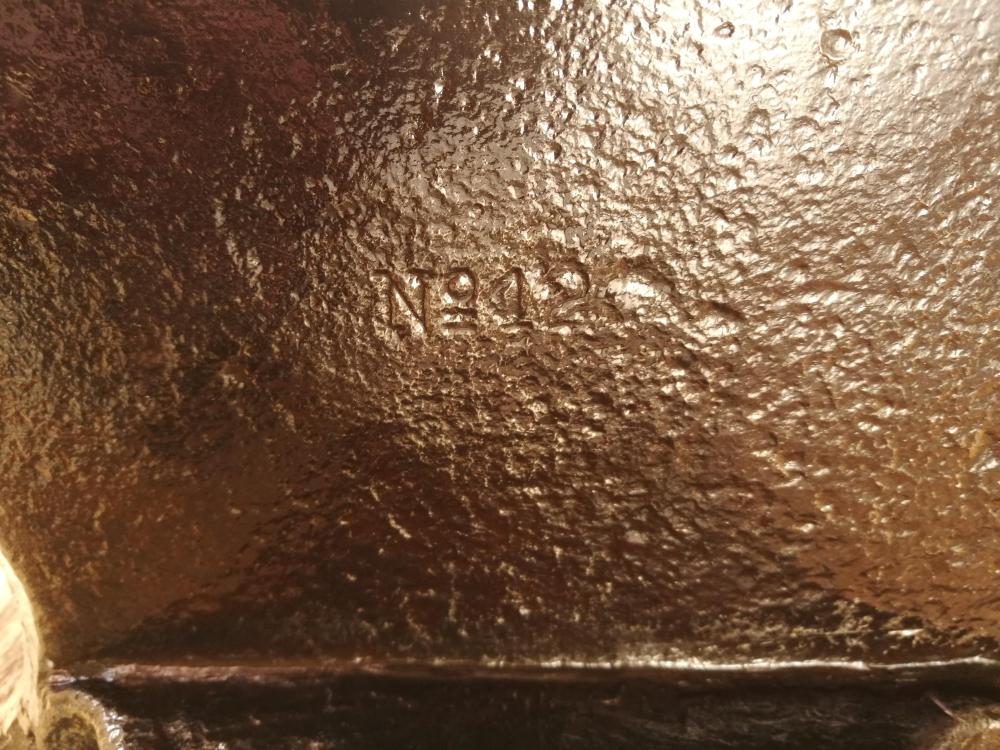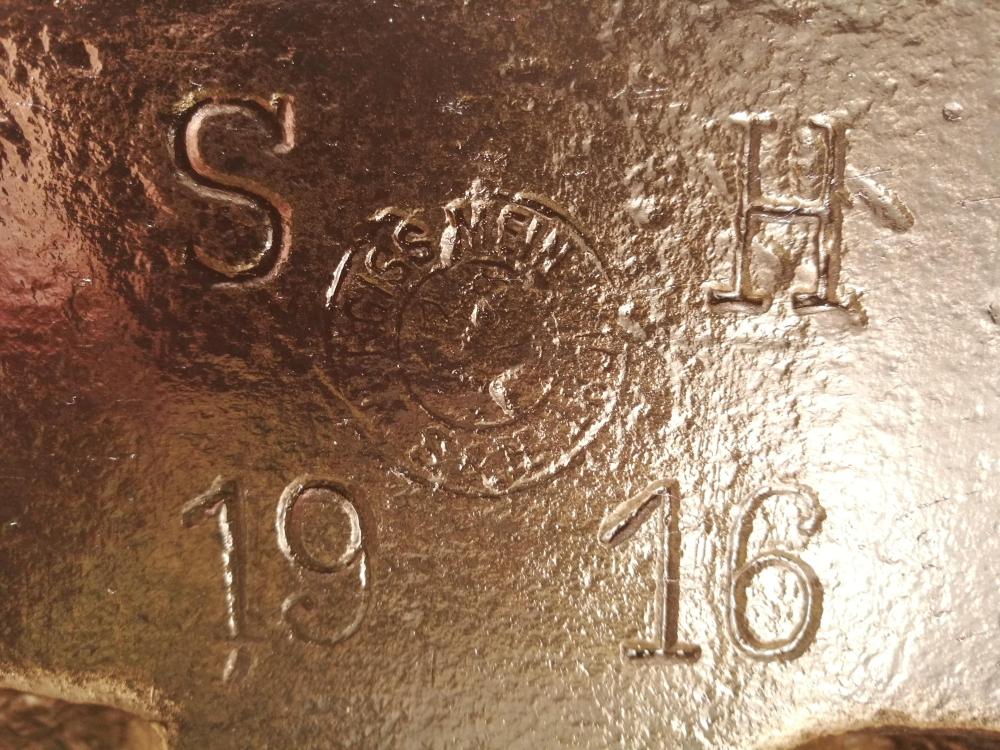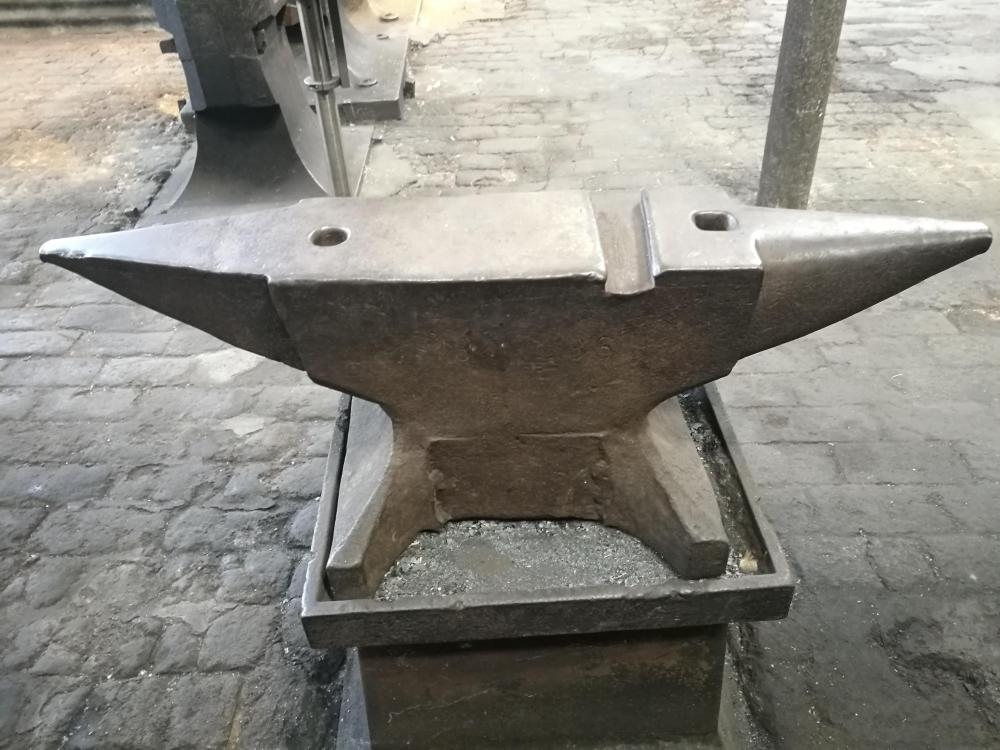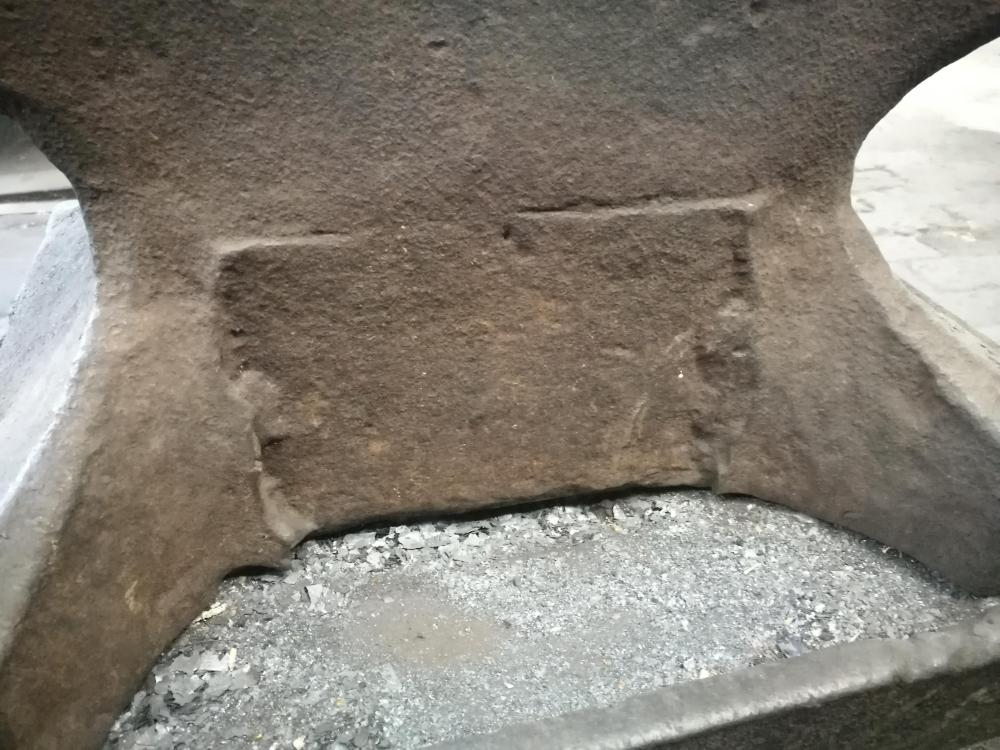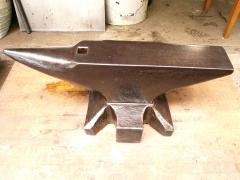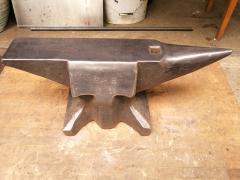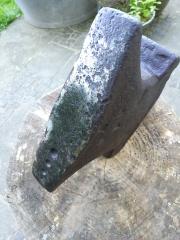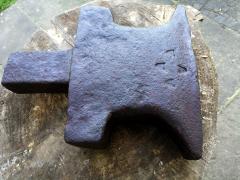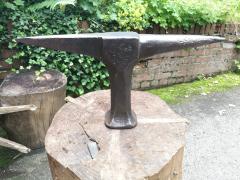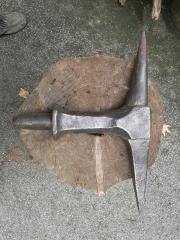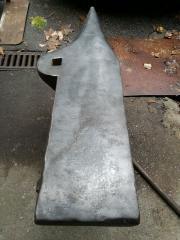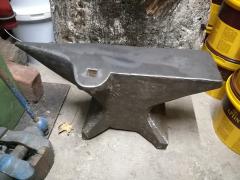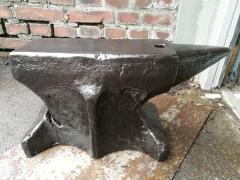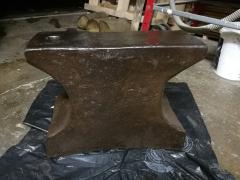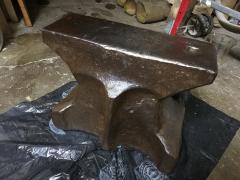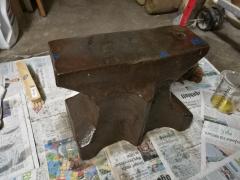-
Posts
75 -
Joined
-
Last visited
Content Type
Profiles
Forums
Articles
Gallery
Downloads
Events
Everything posted by Julianb
-
Hello everyone, as my research of the anvil manufacturer J.C. Söding & Halbach continues, I realized that I could very well need the help of you S&H anvil owners out there. So here's what this is all about: It seems, that at least since the seperation of Winterhoff and Söding in 1863 S&H manufactured anvils in three different "anvil-hammers". A valuation from 1895 lists those three hammers, as well as a total of 12 double-fires. Now there are two questions, that are not yet and might never be answered by the existing source material: - How specialized were the crews at that fires, concerning anvil forms and sizes? Is it possible to approximate some tendencies by comparing a larger quantity of anvils? - Is it possible to at least approximate a time period in which fire number 13 was built? Additionally, if you are willing to go the extra mile and measure them, it'd be interesting to see if there's been a development in the size of the makers mark stamps, but that is not as important. What I hope to gain from a larger accumulation of picture material is a somewhat empirical take on finding answers. Additionally it'd be very nice to have some imagery to attach to the works, if you'd allow me the use of your pictures as cited references. So if you'd like to participate as unpaid research assistants and take sharp and high-resolution pictures of your S&H anvil from every angle and the markings in particular, I'd be extremely happy if you'd post them here. I am aware of the existence of an old thread with pictures of S&H anvils, which hints at a larger collection of images that has been lost, but still wanted to start over with this here topic. Sadly, I cannot offer anything in return except the occasional insight into my discoveries as well as citing you in the table of illustrations. Therefore a big thank you in advance to all who'd like to contribute! Cheers! Julian PS: To start this off, here's my own 97kg S&H anvil out of fire number 12, which comes closest to model number 28 in a S&H catalogue from 1913 (Middle-German pattern with horn on the left side, this one's got an upsetting block on the master's side):
-
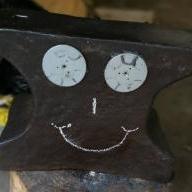
Sichelschmidt und Schlasse (Sickle smith and lock)
Julianb replied to Zozon's topic in Anvil Reviews by brand
A fine example of a cast anvil with welded on faceplate! A clear picture of the cleand up markings would be great! And by the way, "Schlasse" is a proper noun, "Schloss" would mean "lock". Cheers! -
I'd rather disagree with this theory, as we see one foot not completely flush with the body, if we imagine an upsetting block, it would fit nicely onto that. On those pictures of an anvil of nearly the same shape in the industrial museum in Solingen we can see very similar traces of a formerly existent upsetting block.
-
Most interesting, do you have more information on the origin of those anvils? Carl Schlieper isn't an anvil manufacturer though, but primarily a knifemaker from Solingen. They seemed to have dealt in different export goods as well, so your anvils could either be rebranded and exported, or used in their manufacture and stamped with the company name and logo. I'll look into them nevertheless, but right now I doubt that they produced those anvils themselves. And yes, the other one in question above is definitely made by Sichelschmidt&Schlasse.
-
Well, the European ones are nicer, so that's justified!
-
I’m really lucky to be living in such an anvil rich area, otherwise such a collection would be impossible for me. It is glorious in comparison with the availability and pricing of such anvils in the US. M3F, those are some nice anvils, too! The London pattern isn‘t as abundant around here, but I‘m getting ever more intrigued, the longer I‘m looking around on this forums!
-
Hello, I'd like to add to the anvil parade, although I only have a few suitable pictures at the moment. Anyway, here are some of my anvils: My first one - on the evening I got it and had not yet discovered the wonders of a wire brush for the angle grinder - estimated around 150kg (scale goes up to 130): And its slightly lighter but horned relative: Around the same weight: A french pattern forged anvil, no idea about the maker, it only has a "5" stamped into the side. I suspect it to be of German manufacture though, as the french models usually carry such a load of serial numbers, brand names etc. A little smaller, a 97kg Söding&Halbach anvil, with a south-german pattern horn, but middle-german pattern breast and upsetting block: And for now we're moving way down on the weight scale, with a bick iron, marked "CS # 10,5": And for today we'll finish with a small model, around 15kg, no idea how old it is, has some hollows for rivet making and some kind of markings on the side: There are some more, but I don't have pictures that are worth showing. I'm planning on documenting every anvil in much more detailed pictures and share them here, once I got to it. Probably will take a while... Right now I just hope I got it right with the gallery function. Cheers! Julian
-
So right next to the Fulda-Gap... I imagine those were some tense times.
-

German Church Window Anvil
Julianb replied to Ridgeway Forge Studio's topic in Anvils, Swage Blocks, and Mandrels
Hello, I'm afraid I cannot tell you anything new about the maker of your anvil, the abbreviation doesn't ring a bell. The tradition of marking or inscribing every anvil with a companies name or logo is not as old in German anvils compared to for example French anvils. It could also be the markings of the recipient of the anvil, although the marking on the front and back and the additional (serial?) number might suggest otherwise. This anvil form is pretty common in Germany though. There seems to be a development in the "church windows" and style of the center "nose". The older anvils seem to have a much thinner nose and very often the feet are not protruding very much, if at all, on the backside, which makes it possible to lay the anvil flat on its back and actually use the windowed front. Later this feature seems to be at least diminished, as the feet protrude to the same amount on both sides - and the shapes become more symmetrical as well - and the nose grows thicker and the whole thing becomes more of a decorative feature, which also might provide a little more stability (5th foot). If I'd have to take a rough guess, I'd date it somewhere in the later 19th to very early 20th century. -
Definitely, thanks for the tip! Makers marks are on the list of investigation! Sadly, many archives have suffered losses throughout WW2 and also due to recent flooding events, one promising archive might have lost records, I still have to check that once they've reopened. Where have you been located (deployed?), if I might ask?
-
Thank you very much for the warm welcome! Anvils in America is a fascinating read, I'm not sure if I'll ever be able to get this specific about certain anvils, like the exact dating of a piece due to the serial number... but we'll see where the journey takes us. I'll start the thing in German to be able to publish it at all, as I'm not a full time academic and research isn't my field of work anymore, I'd be happy if it got published at all. Otherwise I'll self-publish, but I'm planning on translating it after it is done! I'd also like to keep a narrower focus as it is right now, just to be able to actually finish at some point. After that, there's still loads of yet almost unknown anvil makers to discover. The proximity to the area here also made it easier to somewhat limit the view I'm taking with this work. I'll let you know once I've actually compiled something coherent and readable (and translated that), right now I've got an enormous pile of notes and about a dozen written pages on different aspects... Pictures will follow, though I really don't find the time to actually forge something these days, so maybe it'll "just" be pictures of anvils for the time being.
-
Good evening, or whatever it is in your own time zone at the moment! My name is Julian and I live in the city of Solingen in western Germany. Blacksmithing and many things related to iron and steel industry etc. have thus always been part of my interests, as I'm quite at a good source around here. I took up blacksmithing as a hobby a few years ago and developed a special interest in anvils, which also led me here. Currently I'm working on an academic paper about the history and making of anvils from the pre-roman iron age up until the present, with a rough focus on the area that is today's Germany and a special focus on Westfalia, the main historical anvil manufacturing area in this lands. Hopefully I'll be able to present a whole lot of new insights into some of the more famous manufacturers as Söding&Halbach, Carl Schlasse, Sichelschmidt&Schlasse, Kuhler, Rauhaus and some more, just to mention a few. It'll probably take years though, as I've barely even scratched the surface on what is to be found in which archive. It is also a leisure time project, as my fulltime job is to teach History, German and Technical education as a secondary school teacher. From the brief glimpse I already got of this forums, there seems to be a lot of knowledge and decent nerdery to be had here, so I'm very much looking forward to it. Cheers! Julian

